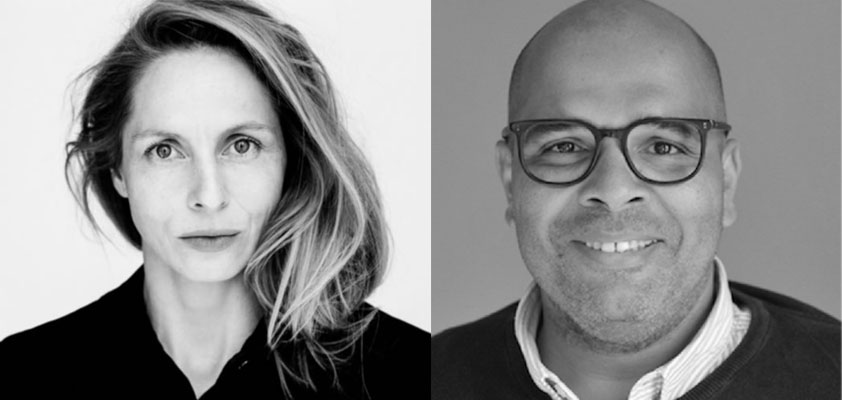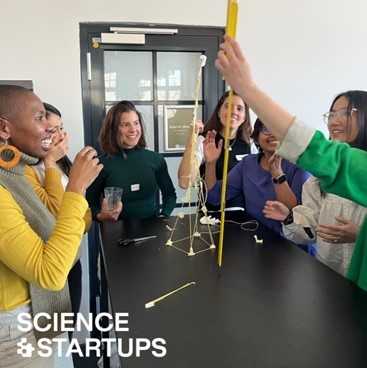Combating fast fashion with upcycling
An estimated 92 million tons of textile waste are generated worldwide each year. Forty percent of current fashion collections go unsold, and only a very small portion is recycled. This overproduction has been significantly driven by fast fashion. Consumers are enticed to purchase clothing they may not even need due to the constant availability of the latest, low-cost items. As a result, we live in a throwaway society where people are more likely to discard clothing than donate it, the textile industry operates at the expense of the environment, and disproportionate amounts of resources are wasted. For example, textile production requires enormous amounts of water and land. Producing a single cotton T-shirt consumes about 2,700 liters of fresh water—equivalent to the amount one person would drink over 2.5 years. Accordingly, in 2020, the textile industry was the third-largest contributor to water pollution and land use. In addition, greenhouse gas emissions harmful to the climate are rising with the consumption of fast fashion products. According to the European Environment Agency, purchasing textiles in 2020 generated around 270 kg of CO₂ emissions per person. It is clear that something needs to change.

Innovation from an EXIST-Women Alumna Against Textile Waste
People like fashion designer Stephanie Pupke-Bertram are among those bringing textile upcycling into the mainstream of consumer society, aiming to counteract textile waste. Stephanie’s project is called recreategoods, which she launched together with software engineer Thomas Chille. At the heart of the project is an AI Upcycling Design Assistant. This tool is used to upcycle unsold but ready-to-wear items by generating visual design suggestions for modifying the original design of a garment. In this way, new collections can be created from unsold stock. Fashion designers can choose from the photorealistic suggestions to match their collection plans. They then receive a work specification that allows them to commission a suggested tailoring service or production facility to process and upgrade the garments accordingly. Through this approach, Stephanie helps the fashion industry make meaningful use of existing, stored inventory—keeping these items in circulation, saving on raw material costs, and preserving valuable production time.

EXIST-Women as a Funding Instrument for Innovative Startup Ideas
In 2024, fashion designer Stephanie Pupke-Bertram completed the EXIST-Women program, an initiative supported by the German Federal Ministry for Economic Affairs and Climate Action, the Project Management Agency Jülich, and the European Social Fund. The program supports female founders emerging from universities and research institutions. Through this initiative, the federal government aims to empower women and foster greater diversity in the still male-dominated startup ecosystem.
“The program gave me the structure I needed to further develop my idea.”
EXIST-Women helped Stephanie pursue her vision of a company specializing in textile upcycling by providing her with the necessary framework. In addition to structural guidance, the program offers events, consulting, mentorship, and financial support for its participants.
Stephanie highlights how much she benefited from these offerings: workshops, one-on-one coaching with Katja Brunner—startup advisor at the HU Founders’ Hub and expert in female entrepreneurship—and mentoring by Darina Mamonova, who played a key role in product development and continues to support her today.
She also took away an important mindset shift: to seek out more support and ask more questions. As a result, her daily work has become more structured and analytical, creating more space for creative and artistic exploration.
“I met incredibly competent, inspiring women from all kinds of disciplines.”
EXIST-Women also expanded Stephanie’s professional network. Through the workshops, she connected not only with Berlin-based fellows but also with participants from other cities and diverse backgrounds.
“The resources from Science & Startups are extensive—there’s content for every stage of a startup.”
Stephanie was particularly impressed by the comprehensive support offered by Science & Startups, Berlin’s startup network, which provides in-depth guidance and resources for startups at every development stage.
In March, a new cohort of EXIST-Women fellows began their funding period. This time, 28 founders will spend the coming months developing their ideas and learning together. We look forward to seeing what innovations lie ahead.

Stephanie’s Plans for recreategoods
Thanks to EXIST-Women, both Stephanie’s project recreategoods and Stephanie herself have grown significantly. For 2025 and 2026, the recreategoods team has ambitious plans: a new team member will support market entry, several collaborative projects with various fashion labels are in the pipeline, and the AI tool will continue to be trained.
In addition, the team aims to develop a long-term business plan, enhance the AI Upcycling Design Assistant with new features, and turn it into a market-ready product.
Stephanie’s journey shows that EXIST-Women is more than just a short-term support program—it continues to bear fruit long after it ends. It’s well worth being a part of it.
